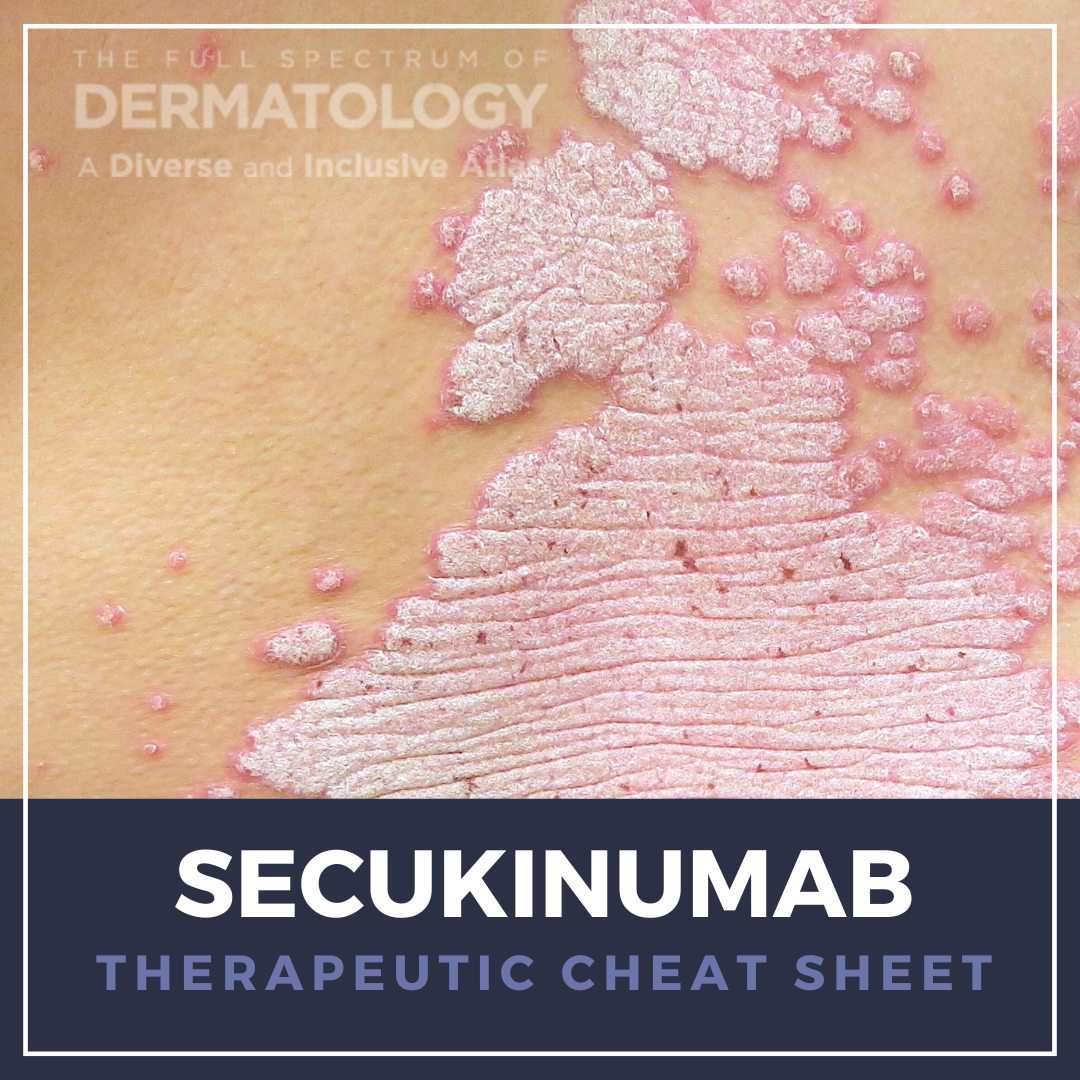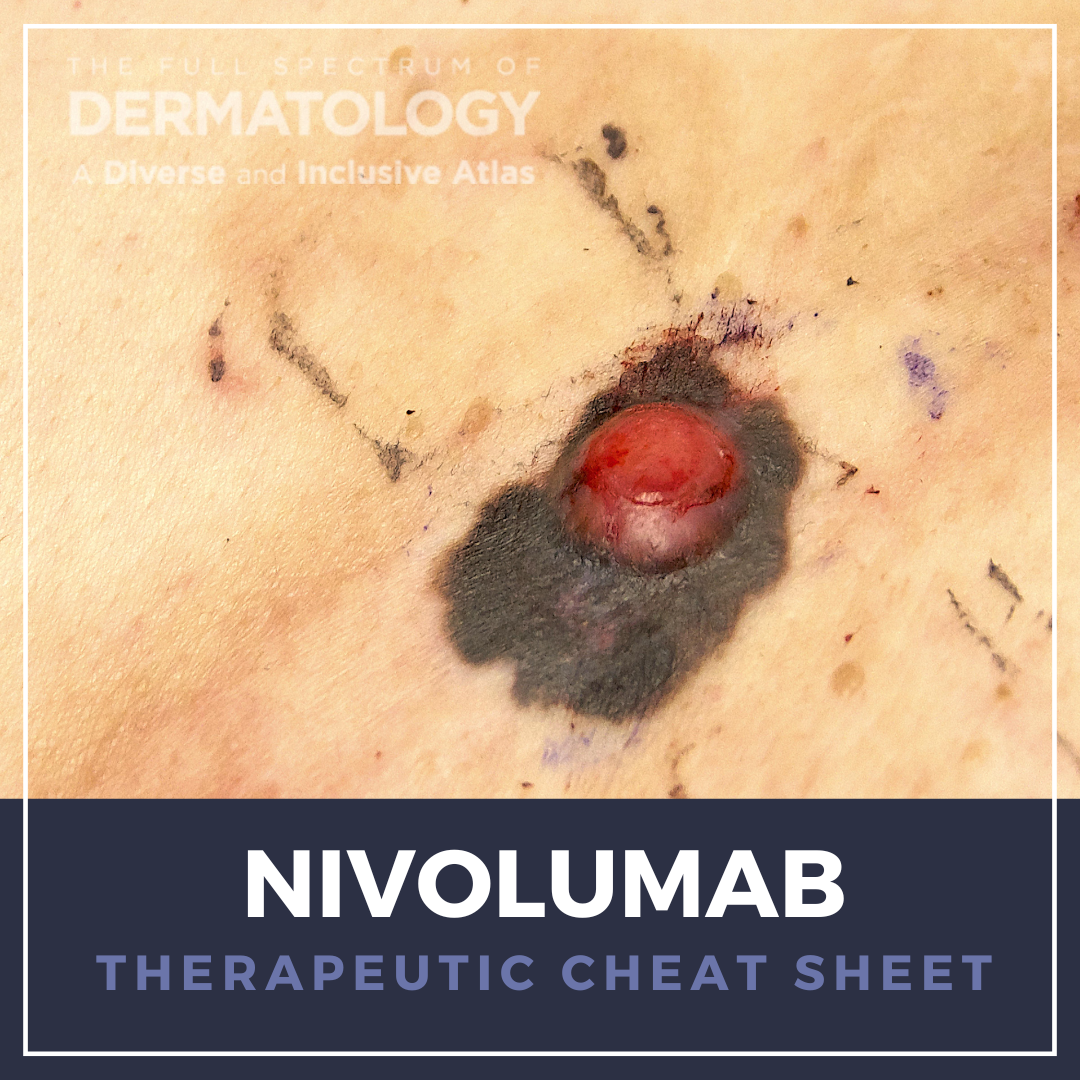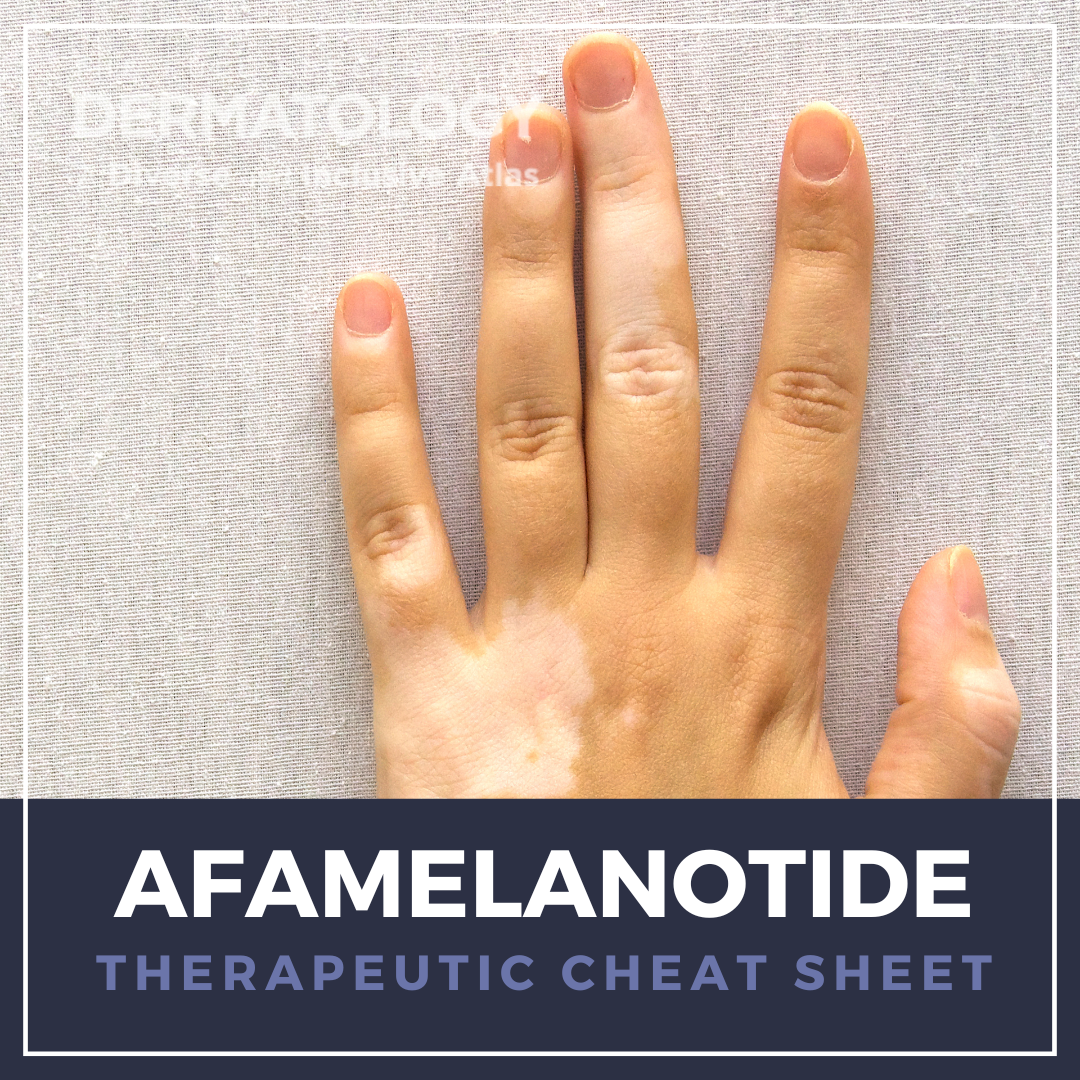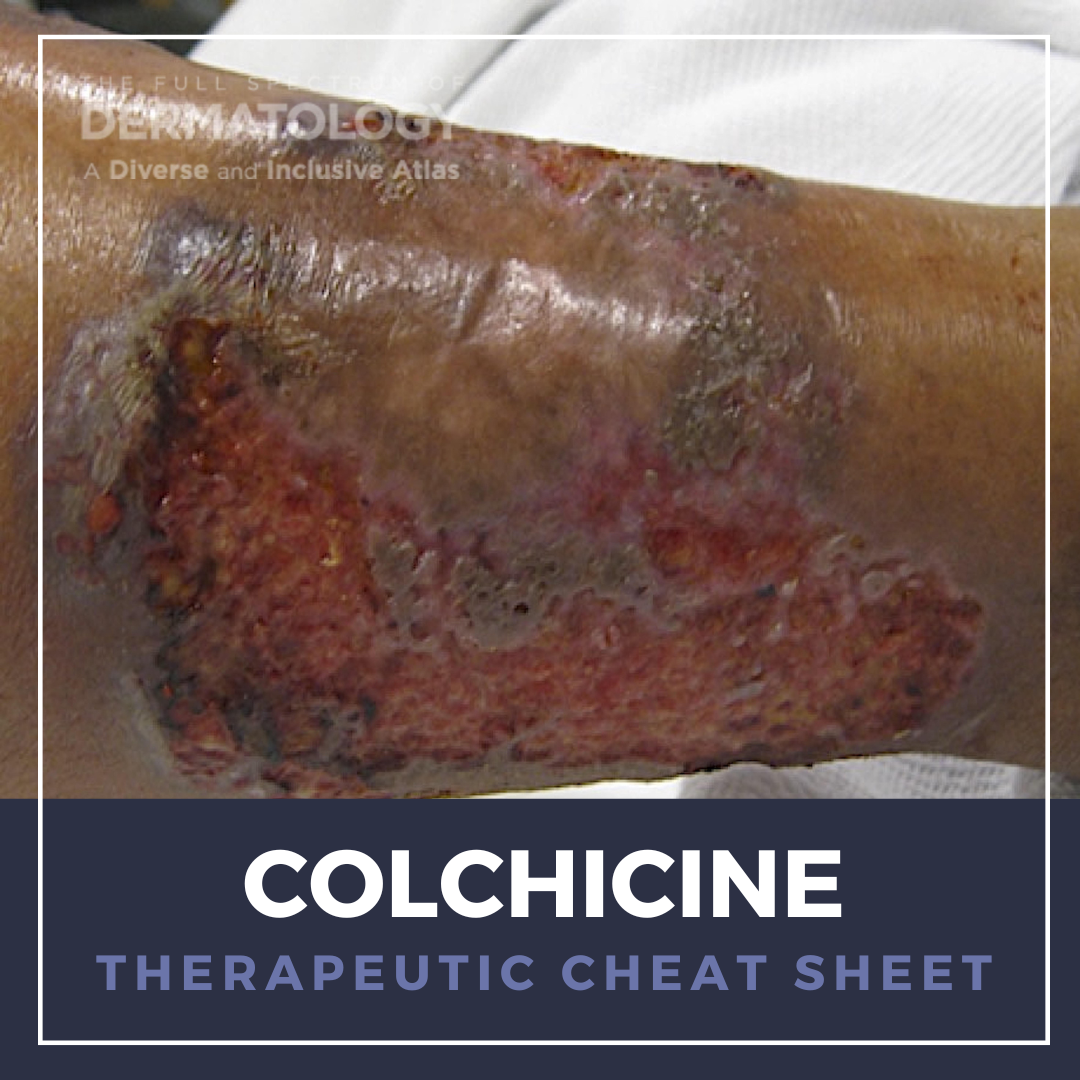Secukinumab Therapeutic Cheat Sheet
 Secukinumab is a recombinant human monoclonal immunoglobulin IgG1κ antibody that selectively targets interleukin-17A (IL-17A), a key effector cytokine in the Th17 pathway implicated in the pathogenesis of psoriasis. With its high target specificity, rapid onset, sustained efficacy, and favorable safety profile, secukinumab has become a mainstay in the treatment of psoriasis and other inflammatory …
Secukinumab is a recombinant human monoclonal immunoglobulin IgG1κ antibody that selectively targets interleukin-17A (IL-17A), a key effector cytokine in the Th17 pathway implicated in the pathogenesis of psoriasis. With its high target specificity, rapid onset, sustained efficacy, and favorable safety profile, secukinumab has become a mainstay in the treatment of psoriasis and other inflammatory …
 Secukinumab is a recombinant human monoclonal immunoglobulin IgG1κ antibody that selectively targets interleukin-17A (IL-17A), a key effector cytokine in the Th17 pathway implicated in the pathogenesis of psoriasis. With its high target specificity, rapid onset, sustained efficacy, and favorable safety profile, secukinumab has become a mainstay in the treatment of psoriasis and other inflammatory …
Secukinumab is a recombinant human monoclonal immunoglobulin IgG1κ antibody that selectively targets interleukin-17A (IL-17A), a key effector cytokine in the Th17 pathway implicated in the pathogenesis of psoriasis. With its high target specificity, rapid onset, sustained efficacy, and favorable safety profile, secukinumab has become a mainstay in the treatment of psoriasis and other inflammatory … 

 Nivolumab, a programmed death-1 (PD-1) immune checkpoint inhibitor, is a cornerstone in the evolving field of immuno-oncology. Originally developed for advanced cancers, nivolumab functions by blocking PD-1–mediated immune suppression, thereby enhancing T-cell–mediated antitumor responses. In dermatology, its relevance has grown not only because of its utility in melanoma treatment and cutaneo …
Nivolumab, a programmed death-1 (PD-1) immune checkpoint inhibitor, is a cornerstone in the evolving field of immuno-oncology. Originally developed for advanced cancers, nivolumab functions by blocking PD-1–mediated immune suppression, thereby enhancing T-cell–mediated antitumor responses. In dermatology, its relevance has grown not only because of its utility in melanoma treatment and cutaneo …  Photosensitive skin conditions can result in cutaneous and systemic symptoms that can have a marked effect on quality of life due to ubiquitous UV exposure. Erythropoietic protoporphyria, for example, can cause severe photodermatitis, excruciating burning and neuropathic pain, nausea, and deep-rooted fear of sunlight that leads to debilitating lifestyle modifications such as remaining indoors. We …
Photosensitive skin conditions can result in cutaneous and systemic symptoms that can have a marked effect on quality of life due to ubiquitous UV exposure. Erythropoietic protoporphyria, for example, can cause severe photodermatitis, excruciating burning and neuropathic pain, nausea, and deep-rooted fear of sunlight that leads to debilitating lifestyle modifications such as remaining indoors. We …  Colchicine, a microtubule polymerization inhibitor, was first described for use in treating joint pain and swelling in ancient Egypt and has since become a mainstay in the medical management of gout. Beyond its indicated uses, it has numerous off-label dermatologic applications, particularly for neutrophilic and autoimmune conditions. As a potent anti-inflammatory, colchicine requires careful lab …
Colchicine, a microtubule polymerization inhibitor, was first described for use in treating joint pain and swelling in ancient Egypt and has since become a mainstay in the medical management of gout. Beyond its indicated uses, it has numerous off-label dermatologic applications, particularly for neutrophilic and autoimmune conditions. As a potent anti-inflammatory, colchicine requires careful lab …  Ivermectin is a semi-synthetic derivative of avermectins, a class of macrocyclic lactones with broad-spectrum anti-parasitic effects. Its unique mechanism of action, favorable safety profile, and anti-inflammatory properties make ivermectin invaluable in the treatment of a wide range of cutaneous parasitic infestations, including scabies. We continue our series, Therapeutic Cheat Sheet, with a cl …
Ivermectin is a semi-synthetic derivative of avermectins, a class of macrocyclic lactones with broad-spectrum anti-parasitic effects. Its unique mechanism of action, favorable safety profile, and anti-inflammatory properties make ivermectin invaluable in the treatment of a wide range of cutaneous parasitic infestations, including scabies. We continue our series, Therapeutic Cheat Sheet, with a cl …